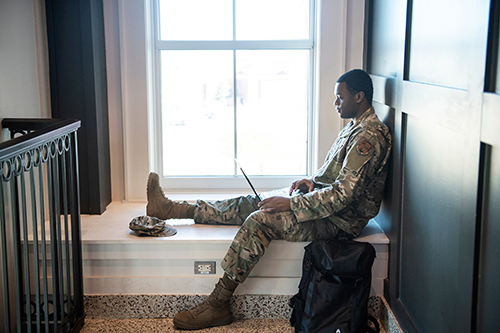Contact: Harriet Laird

STARKVILLE, Miss.—Two centers educating adult learners at Mississippi State are uniting to form a new university college—the College of Professional and Continuing Studies.
MSU’s Center for Distance Education and Center for Continuing Education are combining to enhance program offerings and services through the new merger, which will sharpen the university’s focus on non-traditional, adult learners. The college was officially approved today [May 18] by the Mississippi Institutions of Higher Learning board of trustees.
According to the CPCS’s new Dean Susan Seal, this academic division connects effectively with several pillars of the Transforming MSU strategic plan, including serving the whole student, elevating community and igniting innovation.
“With a college focused on the educational needs of working adults and workforce readiness, we can be agile and innovative in the design of specific applied credit and non-credit programs in the highest demand,” Seal said. “This also opens the door for additional community and industry partnerships, expanded grant and contract opportunities, and so much more.”
Moving into the role of dean after serving for six years as CDE’s executive director, Seal said a quickly evolving education landscape has contributed to this new college’s creation.
An increase in adult learners in the U.S.—13 times the number of traditional learners—along with expansion of digitization, competition from other universities and student financial barriers, are just a few of the accelerators in higher education driving the benefits of the CPCS’s creation.
“Launching the College of Professional and Continuing Studies is the latest example of Mississippi State’s commitment to taking care of what matters,” MSU Provost and Executive Vice President David Shaw said. “We see extraordinary opportunities in connecting more people with innovative, high-quality programs and learning opportunities wherever they are.”
Plans are to position the university’s recently instituted Bachelor of Applied Science degrees in public management and business office technology into the CPCS, offer non-credit continuing education courses while creating pathways for a micro-credentialing program, and provide enhanced student success services.
Seal said, “Distance Education and Continuing Education have had a good working relationship and, in many cases, complementary roles. The formation of the CPCS is an opportunity to create synergy, be strategic in our work, and highly productive, all while growing educational options for non-traditional students.”
MSU is taking care of what matters. Learn more at www.msstate.edu.